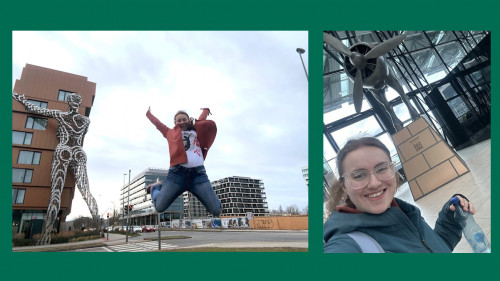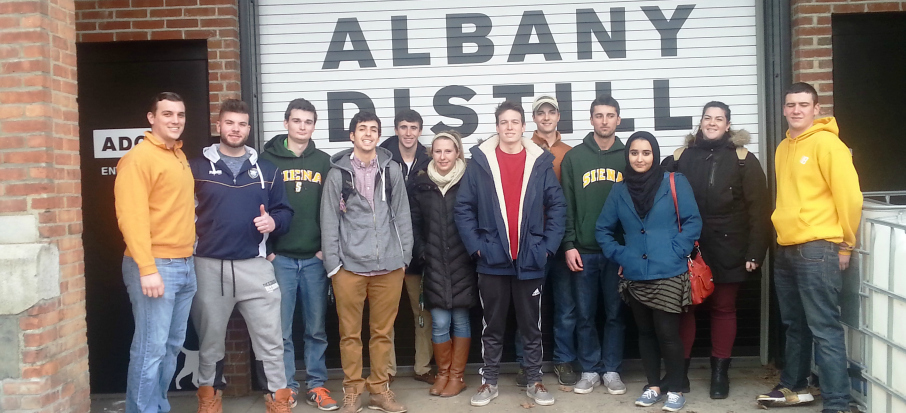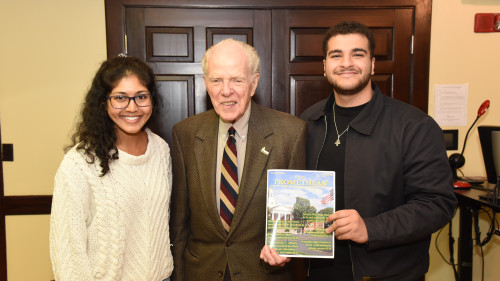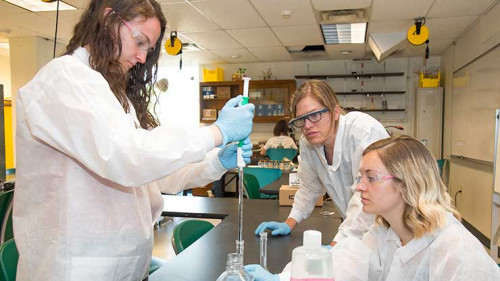

Ever look at a secluded island or town and wonder how it became a tourist hot spot? As technology grows, tourism and travel expands, permitting more people to travel. The massive multi-billion dollar travel industry allows people to travel to the most exotic and remote areas of the world. However, the influx of visitors to an area also creates major negative impacts that can ruin a region, but are often overlooked.
Here at Siena, Professor Kevin Jack teaches the Economics of Travel and Tourism, informing his students about the nature, structure and complexity of the industry.
“In the class, Siena students gained valuable experience and sharpened skills – such as report writing, public speaking and the ability to apply textbook concepts to real-world situations -- that will serve them well when they enter an even more competitive arena, the job market,” said Jack.
This course encourages the students to engage in high impact learning by applying what they learned inside the classroom in real world situations. These students were required to attend two off campus field trips and interview guest speakers about local and international traveling.
“I liked getting off campus and seeing the practical application of the concepts that we learned in class. Concepts, like revenue management, is something that can be applied to many industries and will help any student who takes this class. Having this hands-on experience in the different segments of the tourism industry is something I found to be unique and increased my interest in the subject,” explained economics major Connor Hartnett ’18.
The students interviewed Elizabeth Becker, author of Overbooked and former correspondent for the New York Times, over Skype and discussed the impacts tourism have on an environment. In her book, Becker looks at various tourist destinations that are degraded by the travelers disregard for environmental policies and how the government is not doing enough to protect the area. On the other hand, she applauds the countries that have taken great strides in political and social directions to protect their countries and citizens.
Management major Sarah Common ’17 implemented what she learned in class while on spring break in Aruba. She saw this beautiful country in a rather different perspective than her tourist counterparts. She saw the high end resorts and aqua water that the destination raves about, but she also saw the desolation of towns just outside the resort and cities.
“More and more people who buy ‘ocean front’ summer houses or condos actually end up hiking up prices for the native people, forcing them to leave or sell. Companies buy their homes from them to knock down or sell to someone who will pay large sums for it. These tourist also tainted the naturally clear water from the various water sports and activities.”
At the conclusion of the semester, the class held a Shark Tank event, where the students broke into groups to present their research to a panel of judges, that consisted of members from the Capital Craft Beer Trail (CCBT). The class was responsible for seeking ways to improve tourism to the region and local businesses. Four groups researched other New York trails, interviewed different members of the CCBT, created SWOT analyses, highlighting strengths, weaknesses, opportunities and threats, and offered their recommendations to the panel. Each group stressed the importance of building the new trails' presence on social media and different websites.
Shark Tank judge Joe Bonilla, managing partner, senior media director and co-founder of Relentless Awareness, commended the Saints on great presentations and looked forward to making a few of the changes that the students submitted. He believes that the CCBT will form new committees, revamp their marketing and branding plans and engage with all of the members over the next few years in order to expand and develop the Capital Craft Beer Trail.
The Saints learned that tourism and travel is a rapidly growing industry that incorporates different sectors, such as transportation, housing and eateries. While tourism creates jobs and educates people on unique cultures, there are negative irreversible effects, such as overcrowding, erosion of beaches and pollution. This class offers Siena students an opportunity to understand the positive and negative impacts they have when visiting an area because “some of the most beautiful places are the most vulnerable.”

